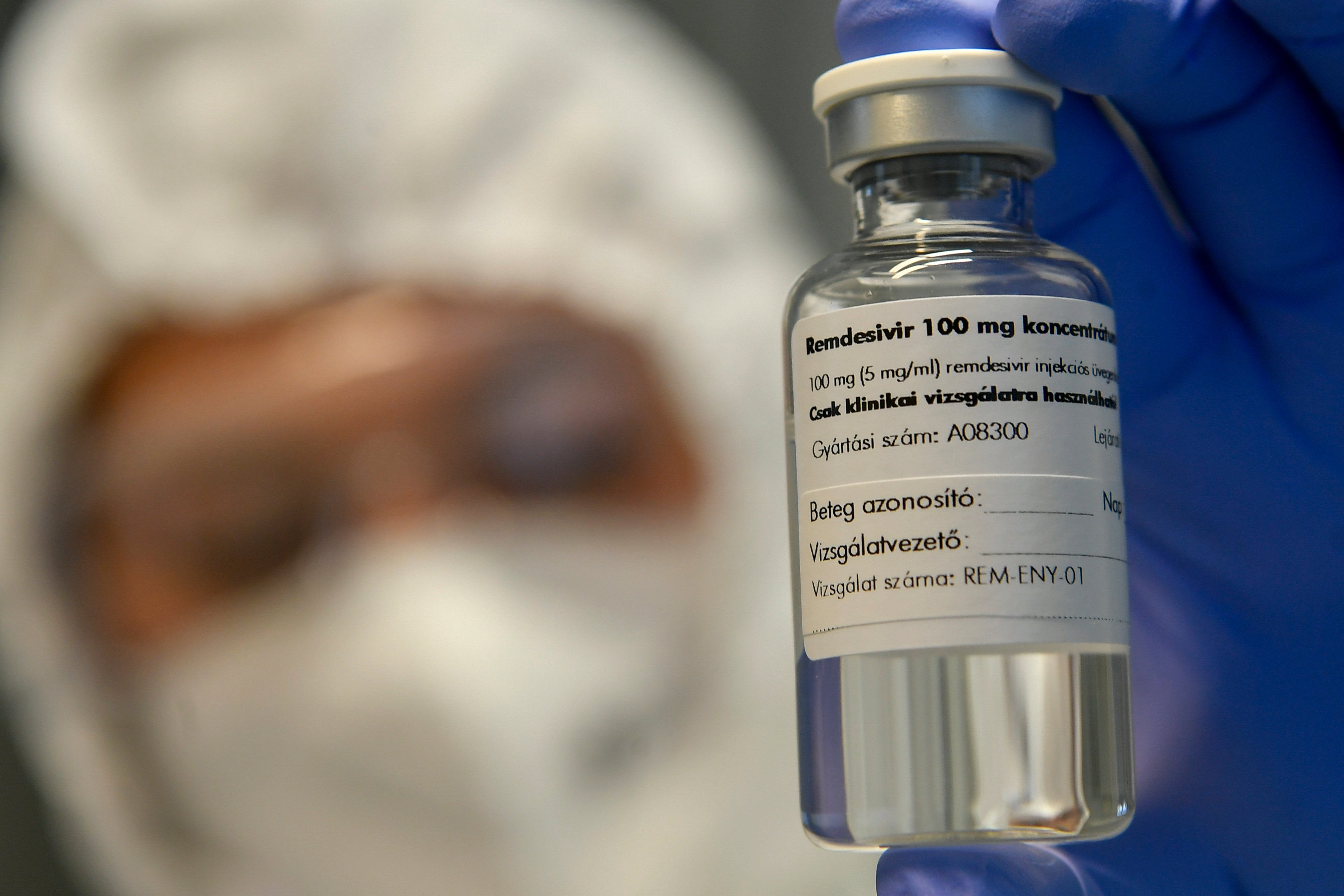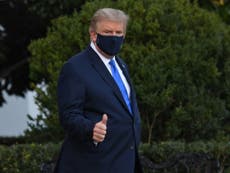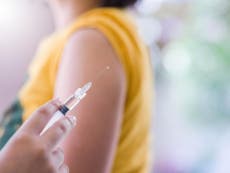Remdesivir: No evidence drug Trump took for coronavirus is effective treatment, says WHO
The global body does not recommend the drug

Your support helps us to tell the story
From reproductive rights to climate change to Big Tech, The Independent is on the ground when the story is developing. Whether it's investigating the financials of Elon Musk's pro-Trump PAC or producing our latest documentary, 'The A Word', which shines a light on the American women fighting for reproductive rights, we know how important it is to parse out the facts from the messaging.
At such a critical moment in US history, we need reporters on the ground. Your donation allows us to keep sending journalists to speak to both sides of the story.
The Independent is trusted by Americans across the entire political spectrum. And unlike many other quality news outlets, we choose not to lock Americans out of our reporting and analysis with paywalls. We believe quality journalism should be available to everyone, paid for by those who can afford it.
Your support makes all the difference.There is no evidence remdesivir is an effective treatment against the coronavirus, the World Health Organisation has said, underlining that the drug given to Donald Trump should not be used on Covid-19 patients regardless of how ill they are.
"The ... panel found a lack of evidence that remdesivir improved outcomes that matter to patients such as reduced mortality, need for mechanical ventilation, time to clinical improvement, and others," the WHO guideline said on Friday.
The recommendation was issued as a “living guideline”, meaning it can be reviewed as new evidence emerges about how best to treat the disease. It was based on findings from four international trials involving more than 7,000 patients hospitalised with Covid-19.
The WHO had previously described the results of its Solidarity Trial, which began in March and examined the possibility of repurposing existing drugs as coronavirus treatments, as “disappointingly unpromising”.
The clinical trial looked at the effects of lopinavir, hydroxychloroquine and interferon-beta 1a on inpatients’ survival chances, concluding that none had a significant effect on mortality rates.
Remdesivir, which was originally developed as a treatment for Ebola, was one of the medications used to treat Mr Trump after the president became unwell with the coronavirus in early October.
In July, the president, who was a strong advocate for the drug, bought up almost the entire world’s supply.
The drug remains one of only two authorised or approved for use globally as a coronavirus treatment, with more than 50 countries signing off on the antiviral medication.
The other is the steroid dexamethasone, which has been shown to reduce deaths among those seriously ill with Covid-19, and has been hailed as a “major breakthrough” in the fight against the virus. A trial in June suggested that the anti-inflammatory drug could prevent one in three deaths among patients on ventilators.
Alongside the lack of evidence about remdesivir’s effectiveness as a coronavirus treatment, the WHO referred to the high cost of the medication, which has to be administered intravenously.
"Especially given the costs and resource implications associated with remdesivir ... the panel felt the responsibility should be on demonstrating evidence of efficacy, which is not established by the currently available data," it added.
Gilead, the pharmaceutical company that produces the drug in the US, has disputed the Solidarity Trial's results. The company lowered its 2020 revenue forecast in October, due to difficulty in predicting remdesivir sales.
"Veklury is recognised as a standard of care for the treatment of hospitalised patients with Covid-19 in guidelines from numerous credible national organisations," Gilead said in a statement, calling the drug by its brand name.
"We are disappointed the WHO guidelines appear to ignore this evidence at a time when cases are dramatically increasing around the world and doctors are relying on Veklury as the first and only approved antiviral treatment for patients with Covid-19."






Join our commenting forum
Join thought-provoking conversations, follow other Independent readers and see their replies
Comments